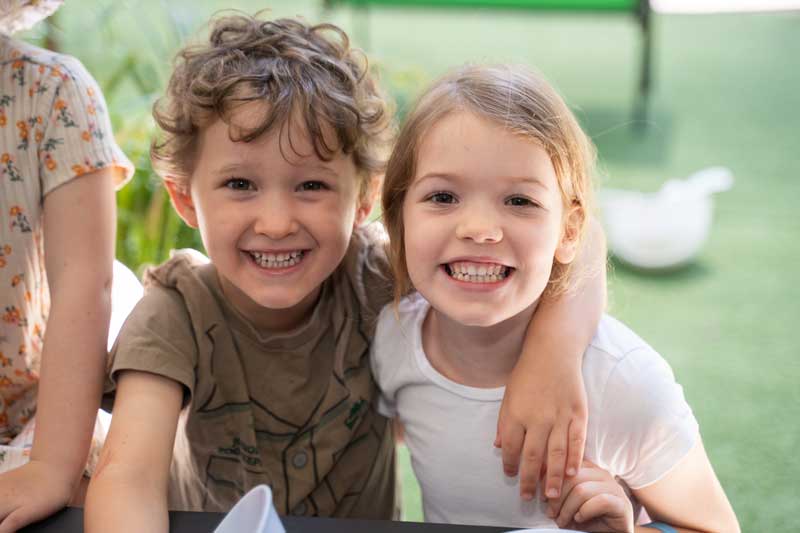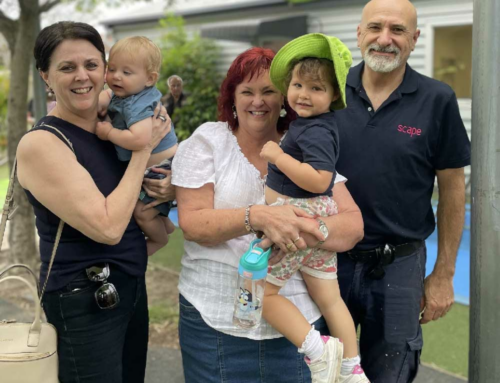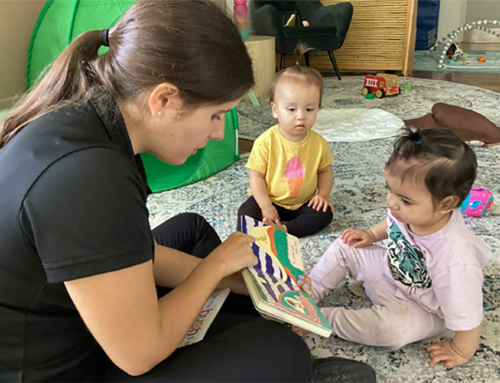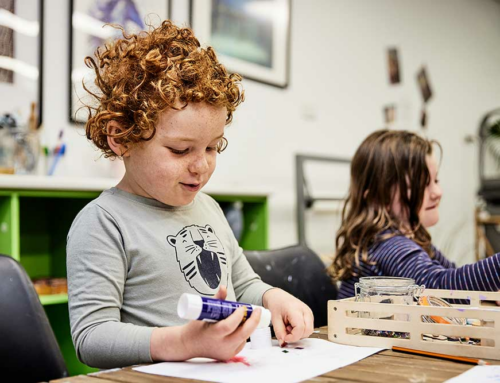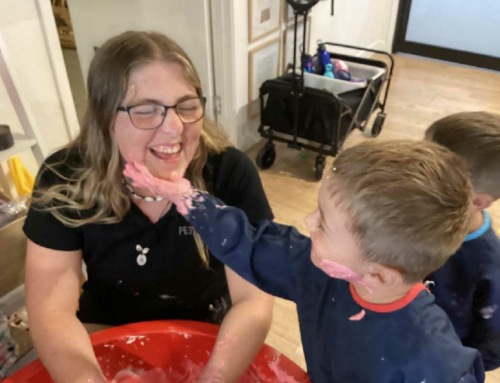Friendships enrich our lives in many ways. Finding friends improves our self-esteem and confidence, increases our sense of belonging and purpose and helps to curb loneliness. Children begin to learn socialisation skills as toddlers, but becoming best buddies often happens closer to age 4.
As parents, we all want to see our children happy and healthy. We know that social interaction is an integral part of this, so how can we encourage our children to develop the skills to socialise with others?
Finding friends can be a challenge for some children. They may have difficulty fitting in as they have yet to have the opportunity to learn how to socialise. Our 22 tips for encouraging children to find friends look at social development for 1 to 3-year-olds, preschoolers and older. We also discuss:
- The social skills children learn
- Why it is essential to learn these skills
- What to do if you have concerns
When children watch adults model good behaviour and have the opportunity to practise skills through role-play, conversation and other child-led experiences, learning how to socialise and make friends can be a fun and enjoyable experience for everyone.

What are children’s social skills?
Socialisation is the ability to interact and communicate effectively with other people. Skills include being able to:
- Listen
- Make eye contact
- Share
- Show empathy
- Express yourself clearly
- Understand body language
- Respect boundaries
- Collaborate with others
- Show patience
- Cooperate
- Ask questions
- Follow directions
- Show kindness
- Be polite
- Show genuine interest in other people
Developing social competence is essential for children. It helps them form meaningful relationships with others while also understanding how to handle different situations. In addition, social development helps boost self-esteem, life skills, self-regulation skills and confidence in young children.

Why is it essential to encourage socialisation in children?
Socialisation is a crucial part of childhood development. It helps children interact with others, build meaningful relationships and process emotions. It also supports children in developing communication skills, such as learning to express themselves.
Learning to be social helps children gain confidence in their abilities. It helps them become more independent and feel a sense of belonging to their world.
By encouraging children to interact in age-appropriate social situations early on, we can give them the tools they need to succeed. Socialisation teaches essential life lessons such as problem-solving, communication and empathy, which will help children navigate different and new experiences as they grow.
The benefits of quality friendship for children include:
- A sense of belonging
- Improves self-confidence and self-esteem
- Improve your happiness and fun
- Decrease stress
- Support for trauma
- Improve physical health and well-being
What to do if you have concerns about your child’s ability to make friends
Making friends doesn’t come easy for everyone. We’re not all social butterflies! Give our tips below a try, and repeat these over several weeks. You may also want to make them part of your family routines and rhythms.
Children with additional needs or challenging behaviour may need extra support with building relationships. If you’re concerned. seek professional advice. If your child attends an early childhood education and care service (sometimes called child care), your child’s educators can support you in observing your child and connecting you with child professionals in your local community.
Medical specialists such as pediatricians and child psychologists can talk with your child and family if you have any concerns about your child’s emotional development, making healthy friendships or developmental ability.

22 Tips for helping children find friends
Families can help children develop strong friendship skills by encouraging positive interactions and teaching them how to respect others. Here are some tips for helping children succeed.
1. Positive attention and reinforcement are essential in helping children learn and build social skills. For example, recognising children displaying favourable social behaviours, such as taking turns or being kind, with verbal praise helps to reinforce positive behaviours.
2. When children see their families and other adults modelling appropriate behaviour, such as being kind, polite, friendly, and patient with others while engaging in positive interactions, they learn to do the same. Positive and meaningful family relationships help children flourish.
3. It’s important to discuss feelings with your child and how they affect behaviours. Emotions are natural, but it doesn’t mean that all of our behaviours should be driven by them. When children learn emotional skills and can express their feelings in a healthy way, they can better navigate the world around them.
4. Chat with your child about healthy friendships. Talk about the friends you had when you were young. How you met them, what you did together and whether you’re still in contact.
5. Demonstrate empathy towards others. Your child will notice you’re listening carefully and responding thoughtfully when someone else is speaking.
6. Teach your child the importance of respecting differences between people by discussing topics like race, gender, and culture openly and honestly.
7. Self-confidence and a positive self-image are essential for children to thrive in social settings. An Introverted child should still be encouraged to make friends. Promote children’s self-esteem and foster positive thinking by:
- Focusing on your child’s strengths
- Encouraging them to take pride in what they can do well
- Using positive affirmations and compliments
- Believing in them and their ability to achieve whatever goals they set for themselves
- Provide new opportunities without fear of failure or judgement
- Showing your child it is okay to make mistakes, take risks and embrace challenges
8. Role-playing different friendship scenarios is a playful way to engage young children in the skills of friendship-making. For example, you can use it to practise:
- Sharing
- Taking turns
- Making eye contact
- Resolving conflict
- Greeting someone
- Personal space
- Facial expressions
- Introducing yourself to someone new

Making friends by asking questions
Questions can help children recognise the importance and benefits of friendship and give you an insight into their friendship-making.
9. Ask your child questions about their friends and how they interact. For example, what do they do with their friends, and what makes them laugh and have fun?
10. Family meals are the perfect setting for children to practise their social skills. Include children in family conversations by asking them questions about their day.
11. Encourage children to work out disagreements by listening, asking questions and communicating their feelings in a healthy way. This approach helps them find a resolution through understanding and compromise.
12. You can also discuss different ideas on how your child can make new friends. For example, suggest trying out new experiences or joining groups in your community – this will allow your child to meet people who share common interests with them.
13. Practise the basics of conversation over a make-believe cup of tea with some of your child’s plushy friends. Show them how to introduce themselves, make eye contact, and use polite language.
14. Once they have these basic skills down, encourage them to make small talk with other children they meet. Such as:
- What games do you like to play?
- What do you like to eat for lunch?
- Do you have a family pet?
- Do you have a favourite colour?
- What is your favourite story?
- Do you like it when it rains?

Places for children to find friends
15. Playdates can help your child build friendship skills. To start, plan a playdate with another family with children the same age as yours. Meeting in a familiar setting like your home or someplace nearby will make it easier for everyone to get comfortable and have fun.
16. Take your child to see friends, neighbours or family members. They can observe how you interact with your friends, start conversations, help them and make plans to meet again.
17. An early childhood education and care service provides children with play-based experiences and group play opportunities where children can meet potential friends that carry into friends at school.
18. The neighbourhood playground is a fun way for your child to observe and interact with other children. They can watch other children play, learn to take turns, and share and cooperate.
19. Playgroups are often managed by a community organisation and provide families and young children with a setting to socialise in through play. Encourage your child to invite others to join their games. This will help them learn how to interact with others.
20. Create opportunities for your child to practise interacting with others by taking them on outings with other children their age, such as children’s book readings at your local library and free children’s activities hosted by local councils, art galleries and art galleries and museums.
21. Discover a hobby or extracurricular activities where toddlers and preschoolers could meet new people their age and make new friends. It could be group music lessons, dance lessons, children’s choir, art or pottery classes. Aside from making friends, it will also give them a sense of purpose and accomplishment.
22. Join local community groups to provide your child with opportunities to make friends. Many options exist, from local sports teams to cultural groups and language programs. There’s something out there for everyone.
A final word on childhood friendships
It really is okay if your child does not always make friends. However, friendships take time and practice, and quality friendships are much more valuable than quantity.
Finally, simply saying “hi” or smiling can go a long way in making new connections! So keep encouraging your child. With your support and a little practice, they’ll make new connections everywhere they go.

Make learning fun with Petit Early Learning Journey
At Petit ELJ, we believe our learning environments are places full of potential and possibility. Our qualified educators plan and design each space to evoke children’s curiosity. Invitations to play and provocations create meaningful interactions with educators and other children.
Building quality relationships with children is essential for their well-being. We invite you to visit our nearest centre to learn more about how we encourage friendships and make learning fun.
